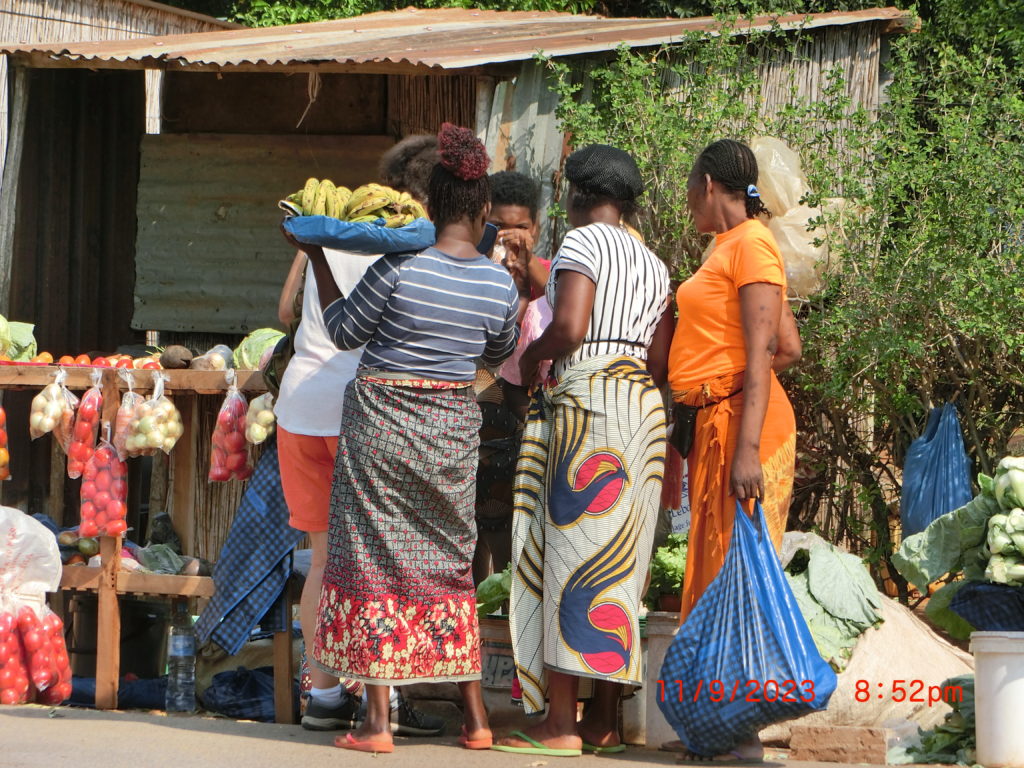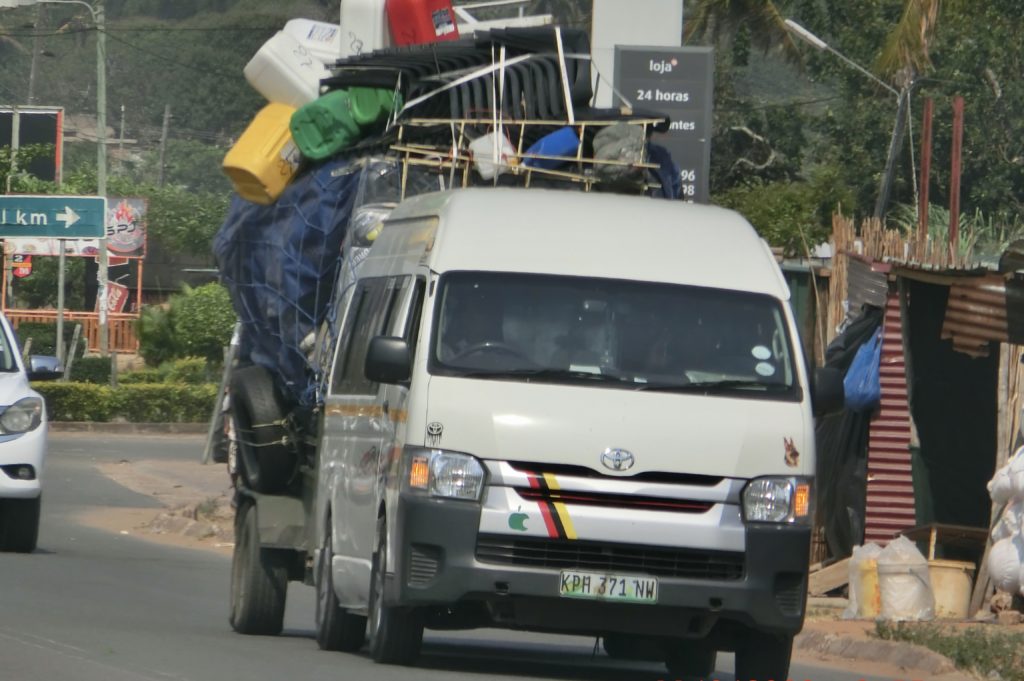Last night our waiter had told us the best time to see whales from the decking area overlooking the bay, was between 7 and 9 in the morning. When I asked him was type of whales they were, he replied “black whales”. So, we’ve no idea what species they are. This morning it was very windy. Apparently the whales don’t come in close when the waves are so strong and crashing on the beach. I did see a couple, but in the far distance.
Along our route to Maputo we stopped several times at roadside stalls to buy fruit and vegetables. Whenever we stop, Poki is surrounded by people trying to sell us things. When I get out and go to a roadside stall, all the neighbouring stall owners come with their goods and I’m swamped.

She’s in there somewhere…:)
I purchased a large bag of tomatoes and wanted a lettuce. I asked the lady selling lettuce for one. While my attention was distracted by another half a dozen people wanting to sell me more tomatoes, she had stuffed at least 6 lettuce in a carrier bag. I said again 1 lettuce and she removed some, but I now have 3.
Another lady was selling custard apples. I thought we should try one. Again I finished up with 2.
I intended to put one in a fruit salad with some bananas and pineapple for desert this evening. When it came to cutting it up it was very hard. I suspect not ripe. Dennis helped as it was pretty tough. Inside are black inedible seeds. We each tried a piece of the flesh. Our reactions were the same. We both spat it out saying it was disgusting.
The road was similar to yesterday. Pretty good, unexciting scenery and constant 60 km limits for small villages. We passed through Xai-Xai, quite a large town and then crossed the Limpopo River.
Driving across the flat flood plain on a raised road, the strong wind was catching us side on. Poor Poki was getting quite a battering.

Taxi vans also tow a freight trailer.
As we got closer to Maputo, the capital city, it became more built up and the traffic heavier. We are staying in a guest house tonight, as one cannot, camp in a city. We found it easily enough, but finding anyone to let us in was another matter. I phoned and got a lady who only spoke Portuguese and hung up on me. Eventually a guy who was hanging around outside, helped Dennis open the gates and we drove Poki in. A lady, receptionist, then materialised.
As she spoke no English our conversation was conducted via Google Translate. I managed to tell her we had a reservation via booking.com. Fortunately, I had plenty of cash as the guest house doesn’t take cards, despite booking.com saying it did.
Maputo
The city of Maputo, until, 1976, was called Lourenço Marques, after a Portuguese navigator who explored the area in 1544. It is the largest city in the country and the commercial and financial hub. It has a population of around 1.1 million. A port city, situated on a large natural bay on the Indian Ocean. It’s chief exports are cotton, sugar, chromite, sisal, copra and hardwood.
It has some interesting architecture and, despite it’s dilapidation, has the reputation of being an attractive city with wide avenues lined with jacaranda and acacia trees. This has earned it the nickname of the “City of Acacias”.
There is a Portuguese fort built in 1781, which we will go and look at tomorrow, together with Independence Square and City Hall. We must also find a supermarket as food stocks are very low, before heading for Ponta do Ouro and the South African border.
.
Views: 69

The Whales would have been ” Southern Right Wales ” and ” The Humpback Whales.